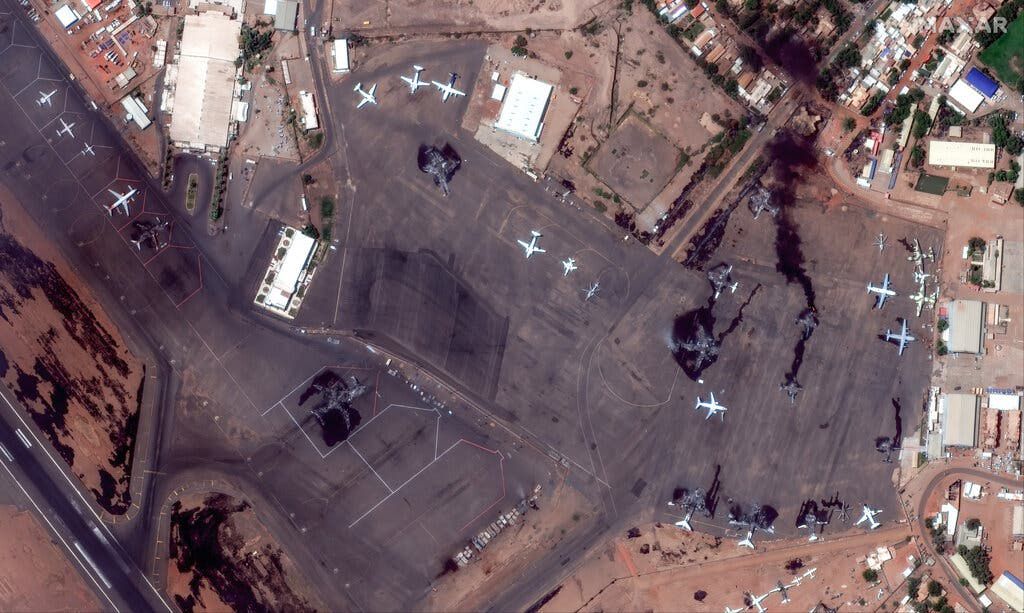For fear of accidentally publishing a novel merely as the prelude to the 2023 Sudanese crisis, the second issue of this article will now discuss the most recent developments to this tale of turbulence.

Relations between the RSF and SAF deteriorated rapidly in February 2023, principally due to disagreements over the lawful integration of the RSF into the Sudanese Army, and the status to be awarded to RSF officers in the future hierarchy, which was originally intended to unify the various Sudanese armed factions with national power.
The RSF’s attack on Sudanese military bases and the Khartoum airport on the 15th of April 2023, followed by retaliatory airstrikes and political arrests marked the beginning of this “catastrophic conflagration” of conflict within Sudan.
Casualties exceed 1,800, with no regard for age or gender, as children, women, and combatants alike are slaughtered mercilessly.
To amplify these atrocities, a further one million individuals have been compelled to flee their homes, an ominous forewarning that we may be facing another distressing refugee crisis in the absence of significant reductions in the intensity of the warfare.
As sparks of violent tension soar in the nation described as a “tinderbox for a wider set of regional dynamics,” neighbouring countries and those with interwoven interests remain precariously threatened.
RELATED Applications of Mathematics in Finance
The United Arab Emirates exemplifies this potential of substantial foreign stakes in Sudan, committing to an investment of $6 million for the construction of a Red Sea Port merely four months prior to this raging eruption of conflict.
Moreover, throughout the proxy war in Yemen, both the RSF and SAF would consistently provide the Saudi-led coalition with troops, further entrenching the significance of relations between Gulf nations and Sudan.
As such, whilst the political positions of these states remain undefined, their investment initiatives are unequivocally halted, imperilling Sudan’s economic stability.
Consequently, both the SAF and RSF should desire a rapid, amicable, and restorative resolution to this factional war, as the failure to do so jeopardises crucial economic and trading ties.
Secondarily, the destruction of innocent civilian passports by various embassies is a neglected consequence of this entirely unanticipated and yet ferocious outbreak of violence.
With “government protocols” cited as justification, both France and the U.S.A. have confirmed the shredding of passports belonging to visa applicants and local staff members, effectively evaporating their legal identity. In the 21st century, a passport is perhaps the single most critical document for any individual.
RELATED Bain Capital acquires majority stake in Adani Capital and Adani Housing Finance
Therefore, individuals who have had their passports destroyed are no doubt to be considered victims of the embassies’ frenzied, fearful, and self-serving withdrawal from Sudan.
However, the tragedy surrounding embassy withdrawals from a nation embroiled in its worst conflict in 20 years extends further.
An Egyptian diplomat, Mohamed Al-Gharawi, during the state-sanctioned evacuation procedure was a victim of fatal RSF gunfire, as alleged by the SAF. A French national was shot and injured under extremely similar circumstances.
A humble logical assumption would suggest that, if protected foreign citizens and diplomats have succumbed to the inexorable violence engulfing Sudan, the nation’s civilians could be subjected to crimes far beyond the realm of international humanitarian law.
Consequently, we arrive at the conclusion that this destructive political feud represents a menacing threat to the lives of the Sudanese public, the nation’s economic state, and morals of civility, humanity, and mercy.
Whilst the conflict remains in its infancy, with U.S. intervention sufficiently compelling to negotiate temporary ceasefires, there remains lingering hope for Sudan to emerge in a wounded, and yet not ruined state.
However, with the neighbouring Tigray War in Ethiopia a sinister warning of the decimation that civil conflicts can cause, substantial action must be undertaken to ensure the Sudanese situation does not spiral out of control.
To get in contact with feedback on this article please email us at publishing@krugmaninsights.com




























Continue with Facebook Continue with Google